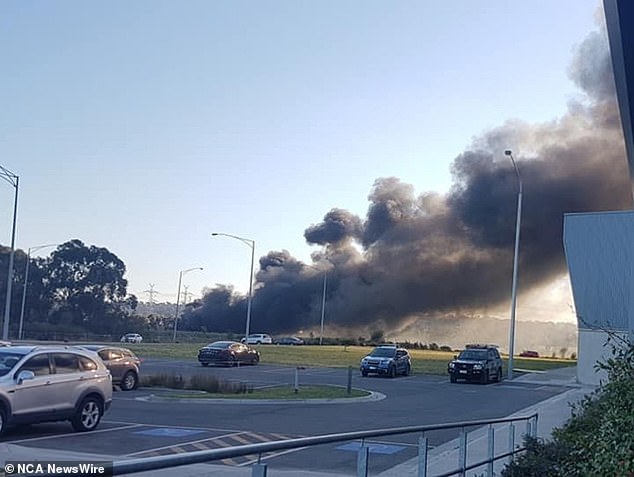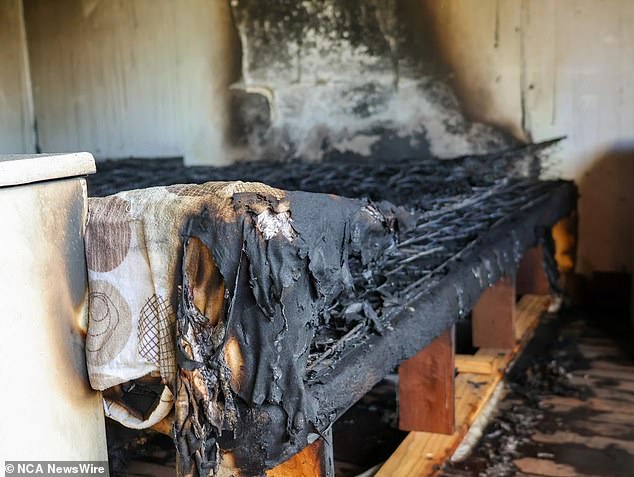Lithium-ion batteries found in e-bikes and e-scooters are causing thousands of fires a year
Lithium-ion batteries are responsible for thousands of fires each year, causing extensive damage to waste facilities, trucks and homes across the country.
Australia produces approximately 3,300 tonnes of lithium-ion battery waste each year, which has caused more than 10,000 fires annually in waste management facilities and trucks alone.
The alarming figures have prompted Environment Ministers across the country to take urgent action to prevent fires from devastating lives and property.
Waste collection company Solo Resource Recovery is seeing an increase in truck fires caused by lithium batteries. Image: supplied
An Environment Ministers meeting was held at Sydney’s Taronga Zoo on Friday, with ministers agreeing to work together on reforms to Australia’s product stewardship arrangements for all batteries.
Product stewardship is similar to the way container deposit schemes operate and act to minimize the health, safety and environmental impact of a product and its packaging throughout its life cycle.
It helps governments identify the best option to reduce the risk of fire, support the battery recycling sector and provide the most cost-effective and efficient approach for businesses and consumers.
A key focus for ministers will be creating financial incentives to ensure the safe disposal of all types of batteries, reducing the chance of batteries ending up in bins or landfills.

A fire at a recycling plant in Wantirna South has sent smoke billowing over Melbourne’s East.
Environment Minister Tanya Plibersek chaired the meeting.
She said the government and states are working together to prevent lithium batteries from ending up in landfills and causing dangerous fires.
NSW Environment Minister Penny Sharpe said Fire and Rescue NSW attended more than 270 lithium-ion battery fires in 2023 alone, but they knew this was only a small portion of the actual number of battery fires.
“If batteries are not stored or disposed of properly, they can threaten lives and cause extensive damage to property and waste infrastructure,” she said.
“Ministers from across the country agree that it is time for urgent action to protect our communities. NSW is proud to be working with Victoria and Queensland on a regulatory approach to batteries, to achieve better design and disposal.”
Emergency Services Minister Stephen Dawson said batteries from cheaper products have flooded the market in recent years and are now becoming damaged or reaching the end of their life.
“These batteries are being replaced with incompatible alternatives, posing a serious fire risk,” he said.
‘Batteries that overheat and explode can start a fire several meters away from where they are charged, engulfing an entire house in minutes.’

A fire engulfed a home engulfed by an overcharged lithium-ion battery. Image: DFES.
Authorities across the country have urged the public to be aware of the risks of lithium-ion batteries as fires increase at an alarming rate.
In Victoria, emergency services responded to at least one lithium-ion battery fire every week last year.
In WA, the Department of Fire and Emergency Services responded to 70 fires started by lithium-ion batteries in the first six months of 2024, compared to 110 in 2023.
Queensland authorities recently recorded 47 fires in residential buildings, eight fires in non-residential buildings and 38 other fires caused by lithium-ion batteries.
